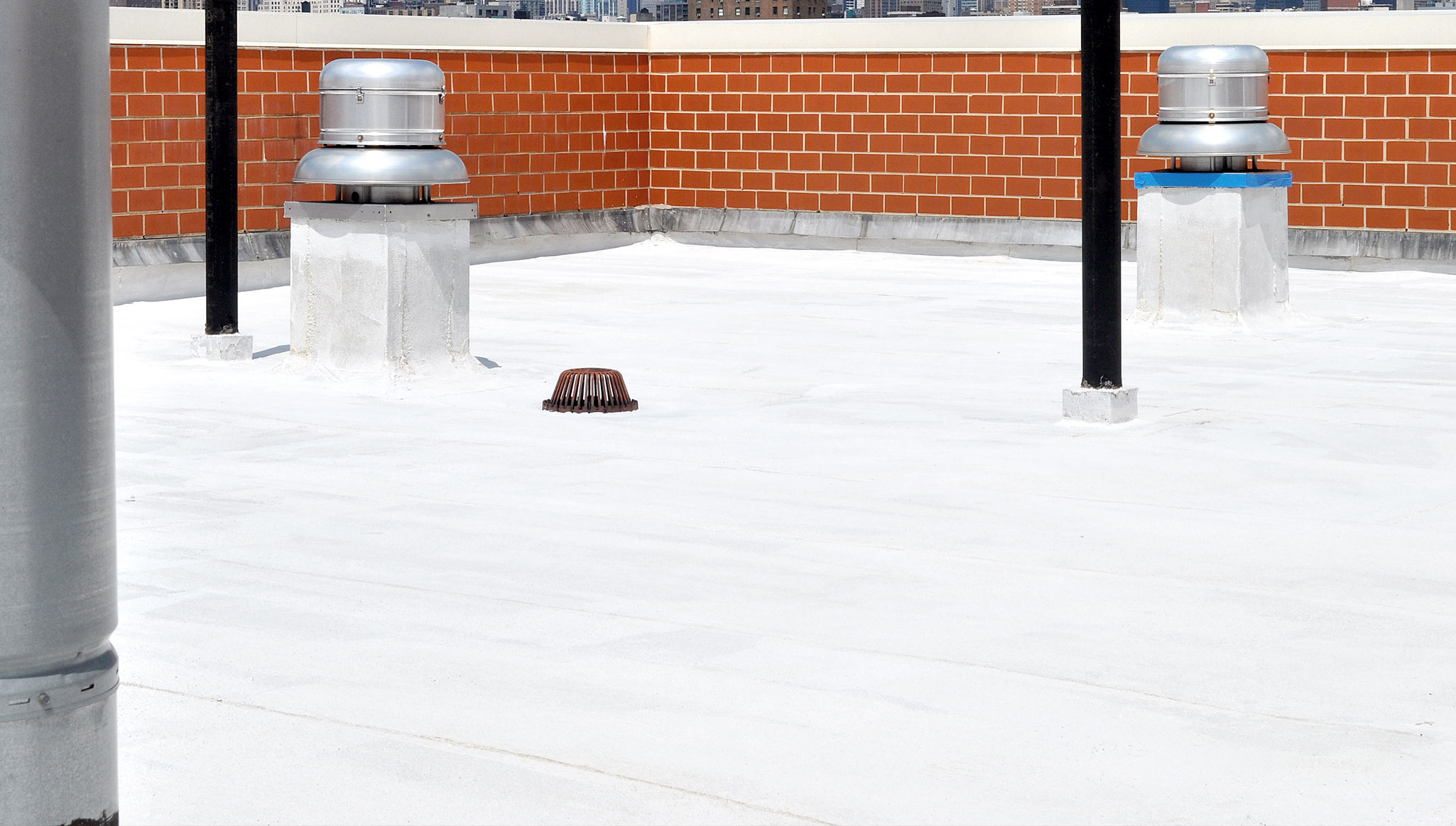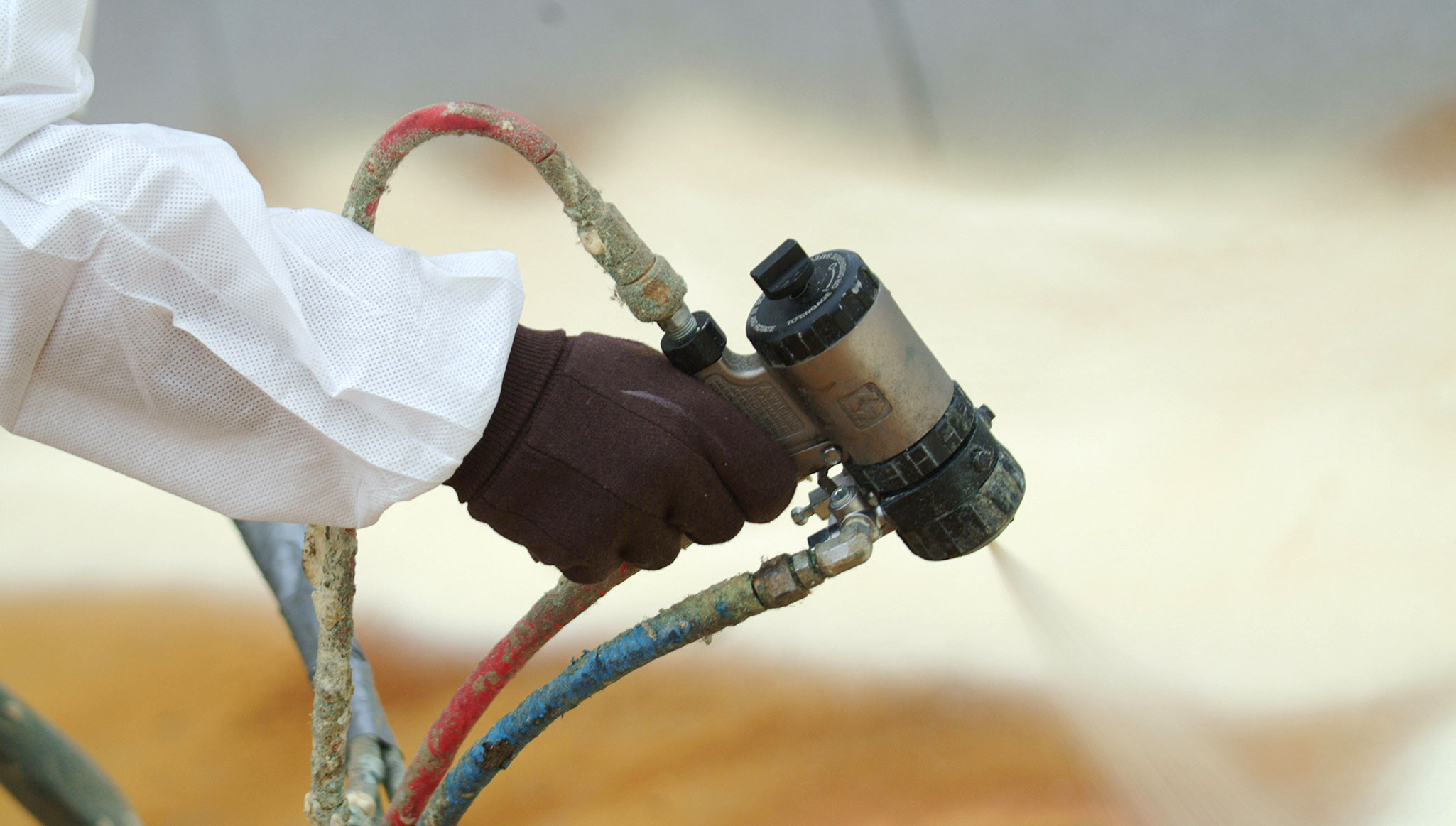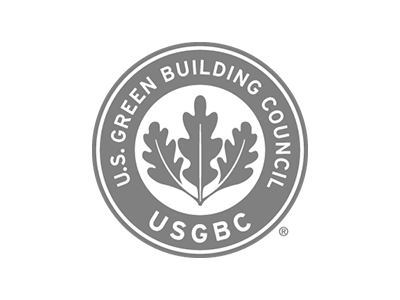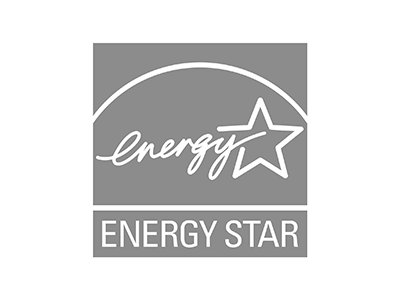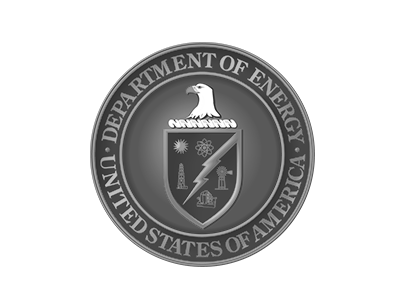Rely on the Building Science Experts
Silicone roofs can save money several ways, including energy savings, rebates and incentives, HVAC equipment downsizing, and extended roof lifetime.Extend The Life Of Virtually Any Roof
Silicone fluid-applied roof systems provide benefit demanded by today's educated building owner including; documented high-performance, durability, 100% sustainability, low maintenance, cost efficiency and reflectivity.
Superior resistance to impact and fire, mildew resistance, flexibility, adhesion, and ease of application make Silicone Roofing Systems an excellent protective elastomeric barrier for extending the life of most roofing substrates.
Half the Cost of a New Roof
Recoating with silicone is the smartest option when deciding which coating to use. Silicone coating can be applied to virtually any existing roof that doesn't need major repairs done to it, which makes for a quicker and easier process.
This also saves you money since you won't need to tear out the existing roof and put in a whole new one. You can take an old roof that has gone through wear and tear for 15 years and turn it into a brand new roof by recoating with silicone and not another coating.
Silicone is Far Superior to other Coatings
Silicone roof coating is also the most energy efficient. With a silicone coating, you could save up to 25% on annual energy expenses. Silicone coatings are also highly reflective, causing UV rays to bounce off of the roof and go back into the atmosphere rather than be absorbed by the roof which creates a hotter workspace for your employees. A reflective coating creates a cooler workspace which could lead to higher productivity for your company.
The Science behind Silicone Roof Coatings
There are many different types of roof coatings on the market today, but silicone is widely revered as the "Cadillac" of the roof coating market. It is generally the most expensive option when looking at material costs, but there is good reason for this increased cost. Silicone coatings have been developed over many decades for many different applications, and these years of development have made it a strong, UV resistant, moisture curing, non-chalking, environmentally friendly product.
Advantages of Silicone Roof Coatings
The Science Behind Silicone Roof Coatings
Silicone can be applied over any type of substrate including: Metal, Mod-bit, Smooth surface BUR, Silicone coated roof, Aged asphalt, PVC, TPO, EPDM, Hypalon, Concrete, SPF (Sprayed Polyurethane Foam), Granulated cap sheets and Torchdown Roofs
- Silicone Roof Coatings are highly UV resistant, more so than most other roof coatings.
- Silicone Roof Coatings are water resistant. Silicone coatngs can withstand permanent ponding water.
- Silicone Roof Coatings have built-in elasticity. Seamless, renewable/sustainable elastomeric (450% elongation), tough (1,500 PSI) VS. acrylics (100% elongation and 200 PSI)
- Silicone Roof Coatings are capable of achieving 90% solids content.
- Silicone Roof Coatings are impermeable.
High UV Resistance
Silicone coatings are highly UV resistant thanks to the tight bond the elements in the material form when cured. Because they are so tightly bonded, they are capable of resisting a high percentage of UV rays. The molecules that make up silicone roof coatings are also highly thermal and photo-stable, which means they are naturally reflective molecules that are being combined together.
Water Resistance

SILICONE WITHSTANDS PERMANENT PONDING WATER
Silicone coatings have been formulated with hydrophobic properties to make them extremely water resistant.
Because of the way the elements bond together, the surface of a silicone roof coating - when examined under a microscope - has tiny protrusions smaller than a drop of water.
These protrusions make it very difficult for water to grab onto anything and work their way past the surface of the coating.
Silicone is an excellent choice for flat or sloped roofs. Extremely durable, Silicone will not soften, bubble or degrade under permanent ponding water.
PREVENTS COSTLY TEAR OFFS. By recoating your weathered roof with Silicone, you not only extend the life of your roof, you avoid the need for a time-consuming and costly tear off.
Built-in Elasticity
While the bonds of silicone coatings are extremely strong and tight, so as to resist UV rays and water, they are also flexible and elastic. The material can flex with different pressures, be it shifting in the building or new forces being applied to the roof surface. Despite possessing a very tight link between the molecules, the science of silicone roof coatings allows them to remain elastic.
High Solids Content
Silicone roof coatings are manufactured by mixing together many different chemicals, beginning with a resin that is 100% solids. Most other roof coatings start with a lower solid base and include filler in the formula which disallows their solid content to get much past 50-55%. This higher solid content allows silicone roof coatings to be installed thicker, in fewer coats, with more precision and a smoother surface.
Impermeability
Again, thanks to the extremely tight and strong bond of the molecules in silicone roof coatings, they are impermeable. Rather than just resisting water and allowing water to run off them, their molecules are so tightly bonded and so complexly organized, they cannot be permeated. This is a significant advantage of silicone roof coatings.
Why Choose Us?

- Constant Owner interaction means no project manager or multiple people trying to make decisions.
- The highest quality products and with many small details that often go unnoticed by other contractors, let's take your roof project to the next level.
- Quality Control. The owner is hands on throughout the project, if any problems or issues arise they can be dealt with immediately.
- Nonstop communication - The key to the success of your project is good communication. And, a big part of communication is listening. From the beginning of a project to its end, our company places a high priority on listening - to you, your needs and wishes.
- Solid Science - Our Building Science experts understand the principles of heat, air and moisture flow, and how the building envelope interacts with a building's mechanical systems as well as its occupants.


